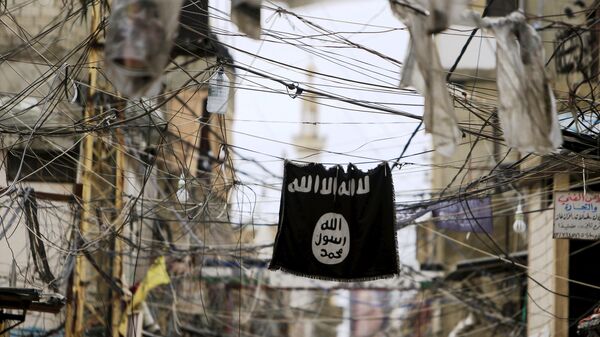Iraqi authorities have raised the alarm after discovering that "highly dangerous" radioactive material was stolen from a storage facility near Basra in November.
According to reports, the facility is owned by a US oilfield services company and the radioactive material is owned by Istanbul-based SGS Turkey. Sources in the Iraqi environment ministry said that the stolen material contained up to 10 grams of Iridium-192 capsules, a radioactive isotope of iridium.
The material was being used for industrial gamma radiography, a process that uses gamma rays to test for flaws in materials. Iridium-192 is also used as a source of radiation to kill cancer cells.
"It is very, very difficult to make a dirty bomb, or 'radiological dispersal device' as it's called. So realistically even if they hold that material the chances of them actually turning it into a dirty bomb are quite slim actually."
Hunter said that the theft "sounds like it was probably an inside job, there were levels of security," and that the ten grams that were reportedly stolen would not be enough for Daesh to make a very effective dirty bomb.
"The concern with them (Daesh) is that they are in possession of huge swathes of critical infrastructure, dams, power plants, oil and gas facilities and of course hospitals. And in those hospitals you have radioactive sources. So in terms of being fearful that ISIS (Daesh) have acquired this capability – they actually have it already."
In order to make a dirty bomb, it is necessary to have both the radioactive source and an explosive in the optimum quantity, Hunter said. One big obstacle facing terrorists who want to make a dirty bomb is the protective encasing used for the handling and transportation of radioactive sources.
"So one of the things that terrorists have tried to do is enter the casing, break it open and then just put the explosive next to this source. But by doing that they've just irradiated themselves and killed themselves."
Hunger said that this danger and complexity makes it very rare for a terrorist group to successfully construct a dirty bomb, but Daesh would probably have the greatest chance of any terror group because it has shown greater technological advancement.
For example, Daesh has been able to make improvised explosive devices, manufacture and reverse engineer weapons systems, and even fix broken components in surface-to-air missile systems.





